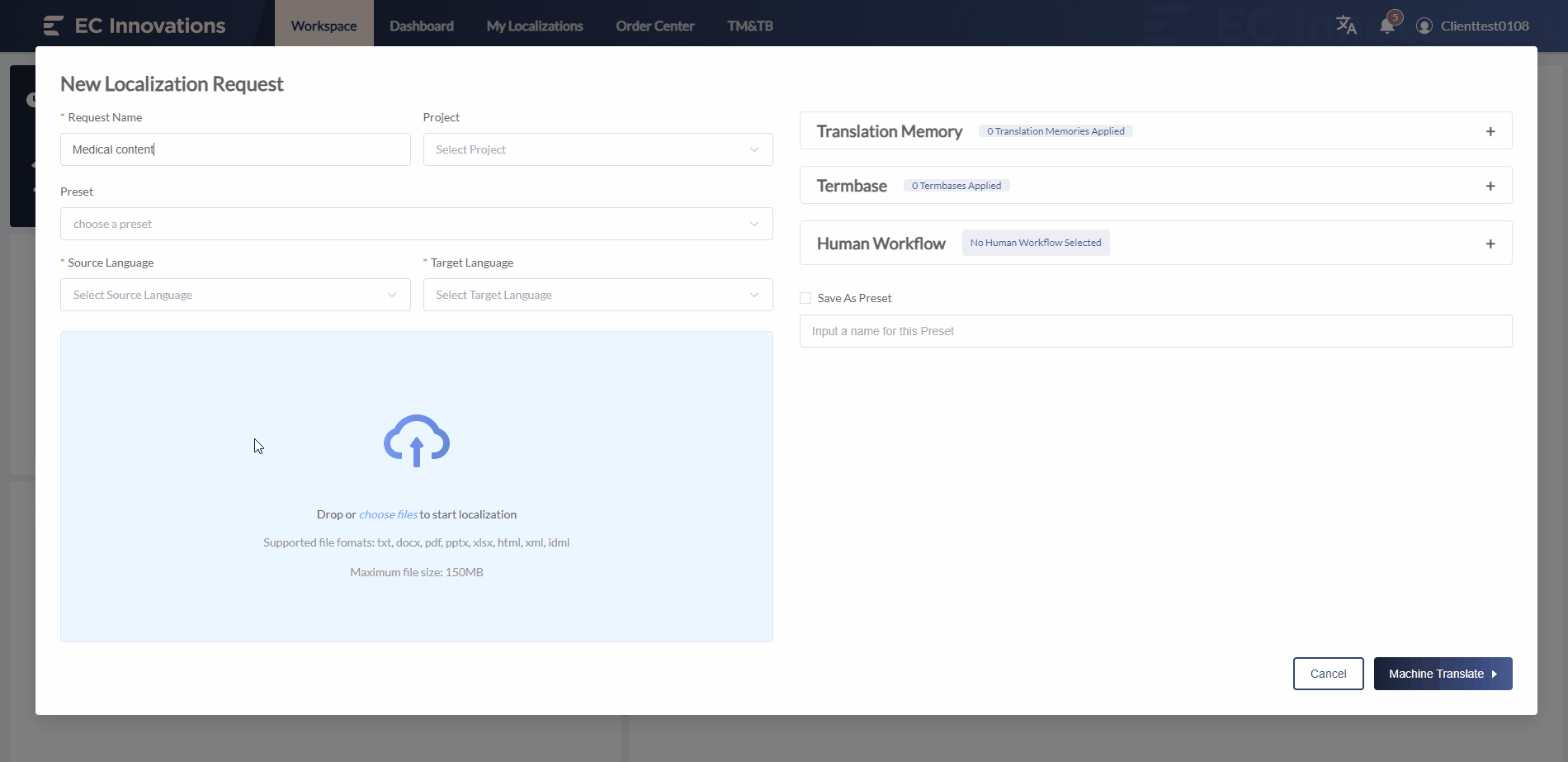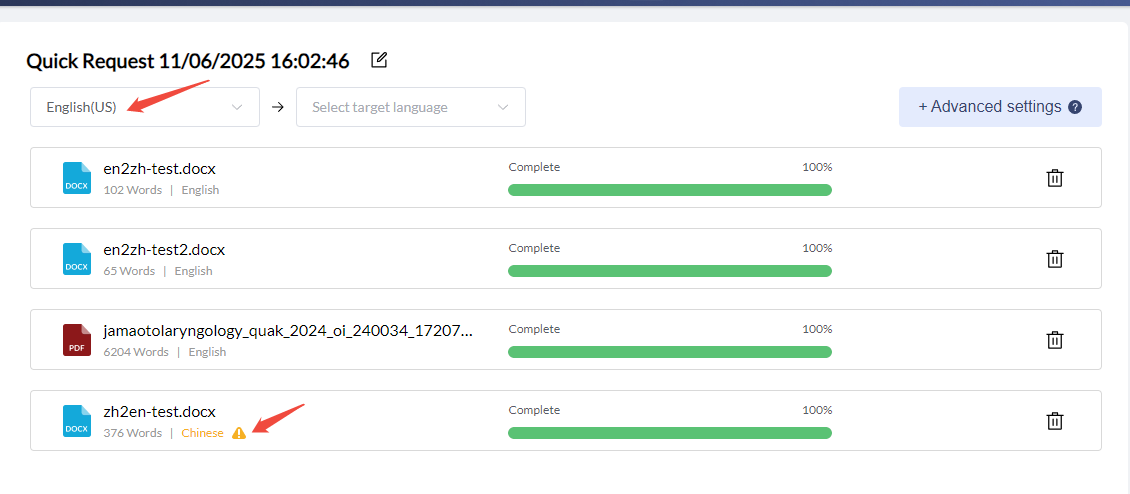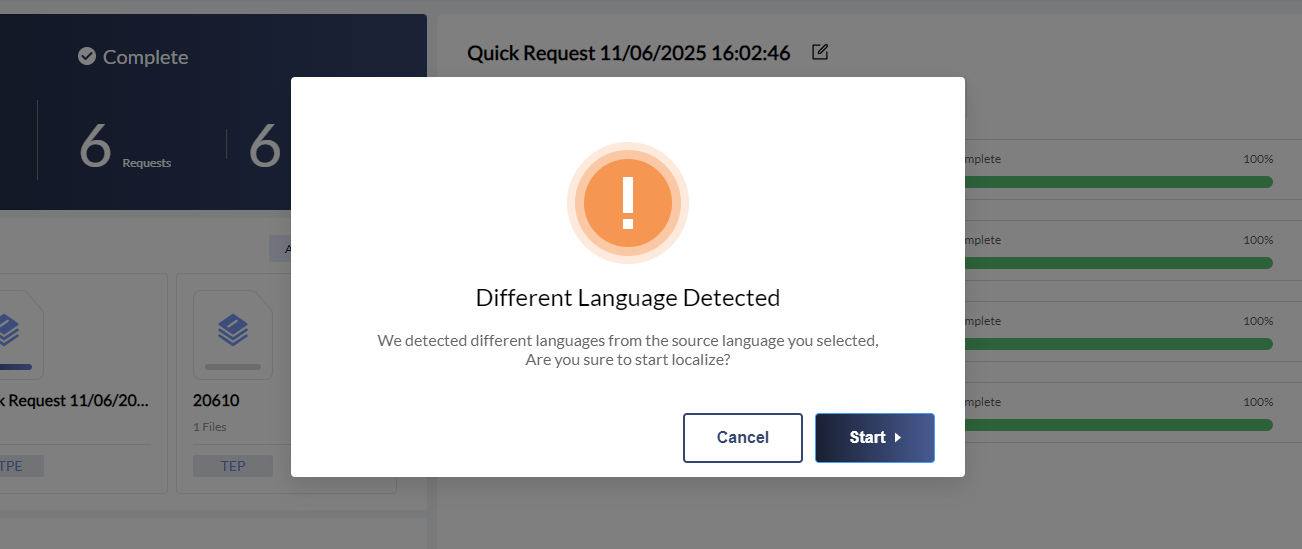Have you ever faced an embarrassing moment as a localization manager?
In the rush of handling multilingual projects, it’s all too easy to confuse German with Dutch or Japanese with Chinese, disrupting the entire translation process. These mistakes lead to project delays and potentially serious errors.
That’s where ECI Link comes in.
Its automatic source language recognition feature accurately detects the original language the moment you upload your files—removing the need for manual selection and ensuring your localization projects start off on the right foot.
ECI Link is your smart assistant, guaranteeing a smooth and efficient localization process from the very beginning.
Choosing the Wrong Language: It’s More Than Just Rework
When project volumes surge, it’s all too easy to select the wrong source language—and even a small mistake can trigger a major ripple effect.
One of our clients, a localization manager at a cross-border e-commerce platform, recently ran into this exact issue. While preparing content for the European market, he accidentally chose the wrong source language when uploading a file to a machine translation tool. The result? Translators spent over three hours reviewing and correcting the output, and the project was delayed by a full day.
Had the error gone unnoticed, it could have jeopardized the market launch—leading to even bigger losses.

(Automatic Language Recognition – ECI Link)
ECI Link automatically detects the source language—whether it’s French, Spanish, or any other—right when files are uploaded. This ensures the correct machine translation configuration is applied from the start, eliminating manual errors and reducing rework costs.
- Fewer mistakes
- Smoother workflows
- More efficient project management
With ECI Link, you set your localization projects up for success—accurately and effortlessly.
Make “Language Check” a Standard Before Translation
In multilingual projects, mixed file languages are inevitable. If not checked, files in different languages like English, German, and Japanese may be uploaded together by project managers, causing some files to be translated incorrectly. This triggers a chain of problems:
- A human team is engaged to check the languages, delaying the project progress.
- Rework costs increase, pushing up translation costs.
- The project is delayed and the market launch is affected.
ECI Link automatically scans the source language of every file, flags inconsistencies, and eliminates risks like invalid translations or duplicate billing.
When translations are submitted, smart reminders prompt users to either proceed or fix flagged files—keeping projects on track.
With flexible responses tailored to your workflow, ECI Link helps reduce management costs and prevent delays caused by language misjudgment.


(Multi-File Source Language Recognition and Prompt – ECI Link)
ECI Link Makes Multilingual Translation Management More Efficient and Accurate
In multilingual projects, the risk of human error grows with the number of files—manual checks slow progress and often introduce more mistakes. ECI Link intelligently monitors language consistency during file import and translation, significantly reducing error rates. By eliminating issues caused by incorrect source language settings, it ensures smoother translation management, prevents quality problems at the source, and allows localization teams to focus on high-priority tasks with confidence.
If you are looking for a truly efficient, easy-to-use, and intelligent localization platform, contact us today to access our free trial plan!
About ECI Link
ECI Link is an intelligent “technology-driven, people-oriented” localization platform developed by EC Innovations. By integrating AI and expert experience, it supports users to flexibly configure translation quality, cost, and delivery cycle according to actual needs. Through automated processes and expert review, the platform aims to provide companies with efficient and accurate localization solutions spanning multilingual and multi-industry scenarios, supporting their global expansion.

